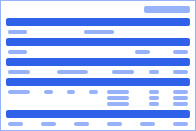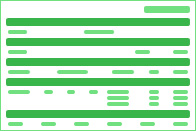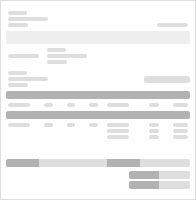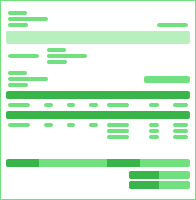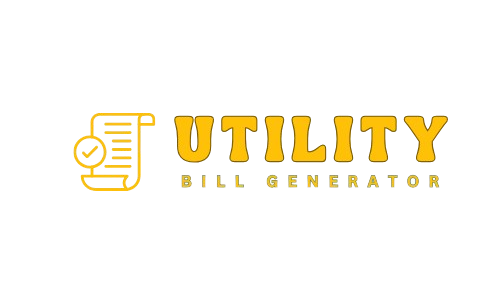| CO. | FILE | DEPT. | CLOCK | VCHR.NO | 062 |
| 7qf | 760342 | 267482 | 47343 | 6890450555 |
| Period Beginning: | 03/28/2025 |
| Period Ending: | 04/27/2025 |
| Pay Date: | 04/27/2025 |
| Earnings | Rate | Hours | Amount | Year To Date | |
|---|---|---|---|---|---|
| Regular | 10.00 | 40.00 | 400.00 | 1,600.00 | |
| Overtime | 0.00 | 0.00 | 0.00 | 0.00 | |
| Holiday | 0.00 | 0.00 | 0.00 | 0.00 | |
| Vacation | 0.00 | 0.00 | 0.00 | 0.00 | |
| Bonus | 0.00 | - | 0.00 | 0.00 | |
| Tips | 0.00 | - | 0.00 | 0.00 | |
| Gross Pay | 0.00 | 1,600.00 | |||
| Deduction | Statutory | ||||
| FICA - Medicare | - 5.80 | 23.20 | |||
| FICA - Social Security | - | ||||
| Federal Tax | - 0.00 | 0.00 | |||
| State Tax | - 5.17 | 20.67 | |||
| Net Pay | $364.23 | ||||
| Check | - 364.23 | ||||
| Net Check | $0.00 | ||||
| Other Benefits and Information | This Period | Year To Date | |
|---|---|---|---|
| Pay to the order of | EMPLOYEE NAME | |
| This amount | Three Hundred Sixty Four And 23/100 Dollars | $364.23 |
Instructions for Utility Bill
What is Utility Bill?
Utility bills are regular invoices or statements that individuals or businesses receive from utility service providers for essential services such as electricity, water, gas, and sewage. These bills outline the usage of these services during a specific billing period and detail the associated costs. Utility bills are typically sent on a monthly or quarterly basis, depending on the service provider and the location. Utility bills are essential for individuals and businesses to understand and manage their expenses related to basic services. Keeping up with these bills and paying them on time ensures the uninterrupted provision of utilities and avoids late fees or service disconnections.
What are Common components of utility bills?
- Account Information : This section includes details about the customer's account, such as the account number, billing address, and contact information.
- Billing Period :Utility bills specify the timeframe for which the services are being billed. For example, a monthly bill might cover the usage from the 1st to the 30th (or 31st) of the month.
- Service Usage :Utility companies measure the consumption of services like electricity, water, and gas in units. The bill will show the amount of each service used during the billing period.
- Rates and Tariffs : The bill lists the rates and tariffs applicable to each service, which determine the cost per unit of consumption. These rates are set by the utility provider or regulatory authorities.
- Total Charges : This section summarizes the total cost for each service, often broken down into subtotals for clarity. It includes the charges for the actual usage as well as any additional fees or taxes.
- Due Date : The bill specifies the date by which the payment must be made to avoid late fees or service interruptions. This due date is crucial to ensure timely payment.
- Payment Options :Utility bills usually provide information on how to pay, including various payment methods such as online payments, checks, or automatic bank transfers.
- Customer Service Information :Contact details for the utility company's customer service department are typically included on the bill, allowing customers to inquire about their bills, report issues, or request assistance.
- Usage Comparison :Some bills may include graphs or charts that show the customer's historical usage patterns, helping them track and manage their consumption.



